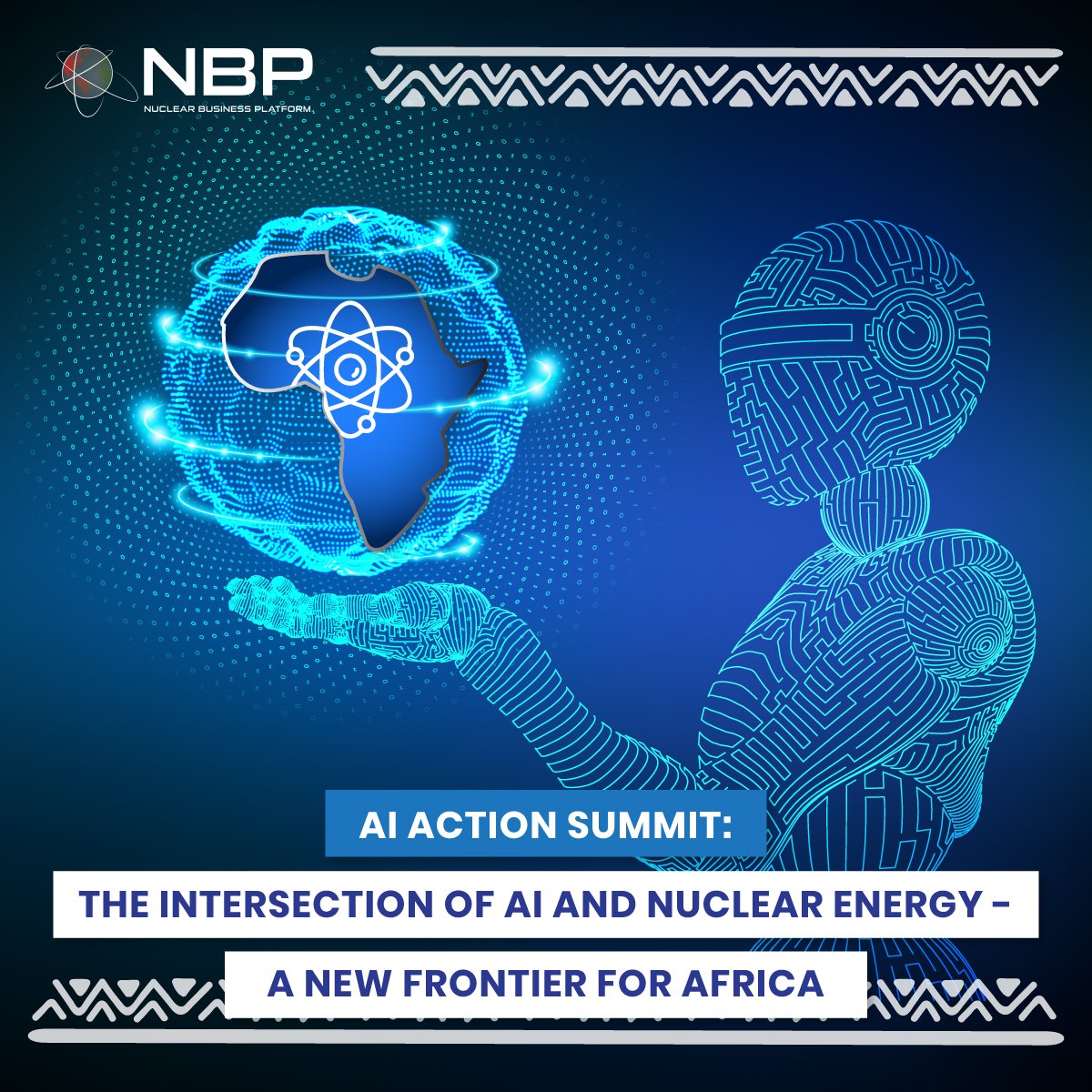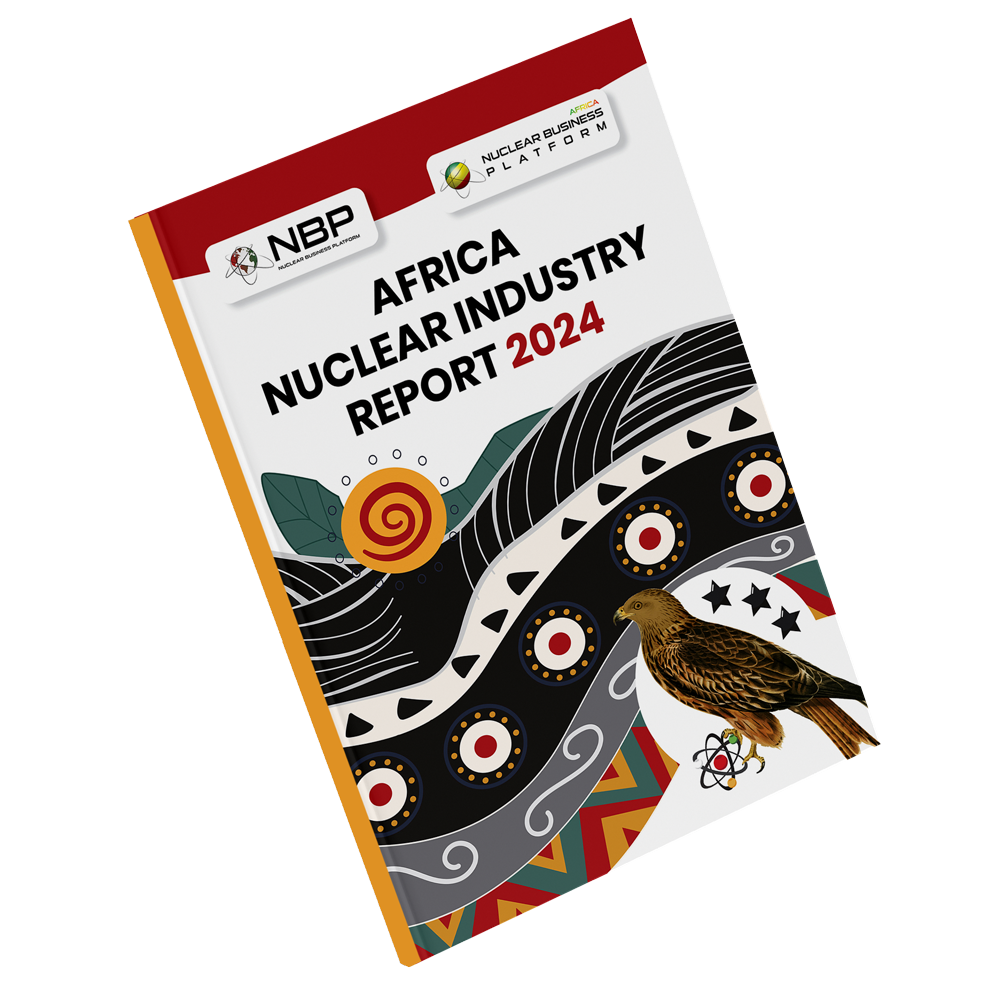AI Action Summit: The Intersection of AI and Nuclear Energy - A New Frontier for Africa
The recent IA Summit in Paris highlighted the significant importance of artificial intelligence (AI) on the global stage. In order to power this energy-hungry sector we witness a growing synergy between artificial intelligence (AI) and nuclear energy, particularly in addressing the massive electricity demands of AI data centers. Global data center electricity consumption could triple by 2030, reaching up to 1,000 TWh annually, with AI accounting for nearly 25% of this demand. In response, tech giants like Microsoft and Amazon are turning to nuclear energy, a stable, low-carbon power source, to future-proof their operations. This trend presents a unique opportunity for Africa, where tech companies could establish data centers and finance the construction of nuclear power plants (NPPs) to support them, creating a win-win scenario for both parties. This article explores the potential benefits for both Africa and the tech industry, drawing on the insights from the IA Summit and the ongoing developments in the United States.
The Energy Demands of AI: A Nuclear Solution
AI's rapid advancement has led to an unprecedented increase in electricity consumption. Data centers, which are the backbone of AI operations, require vast amounts of power to function efficiently. According to the IA Summit, the energy needs of AI are so substantial that traditional energy sources may not suffice. Training a single large language model like GPT-4 consumes over 1,000 MWh—equivalent to powering 1,000 homes for a month. To meet this demand, U.S. tech firms are investing heavily in nuclear energy:
Microsoft made a $1.6 billion deal to restart Unit 1 of the Three Mile Island nuclear plant in Pennsylvania, partnering with Constellation Energy. The reactor, which was shut down in 2019, is expected to come back online by 2028 and provide 835 MW of carbon-free energy to power Microsoft’s data centers for the next two decades, aiming to power its AI-driven Azure cloud services with 24/7 carbon-free energy.
Amazon led a $500 million funding round for X-energy. As well as collaborating with Energy Northwest to build a 320 MW pod of four X-energy reactors in Washington State, aimed at powering its data centers. Finally, it is securing power purchase agreements (PPAs) with NuScale Power for small modular reactors (SMRs) to electrify its AWS data centers, targeting 100% renewable and nuclear-sourced energy by 2030.
Google has signed an agreement with Kairos Power to purchase 500 MW of electricity from its SMRs by 2035.
Meta is also exploring nuclear energy to power its AI operations. The company has launched a call for projects to select a single SMR technology for all its AI-related energy needs. This initiative could accelerate the development and deployment of SMRs.
These moves align with broader trends. As Canadian Prime Minister Justin Trudeau highlighted during the AI Summit the significance of nuclear energy in powering AI, which will be a key priority at this year's G7 summit. The U.S. nuclear industry has slashed operational costs by 30% since 2012 (from 4.4¢/kWh to 3.1¢/kWh) by upgrading existing reactors to operate for 80–100 years. Yet, new large-scale reactors face hurdles: the Vogtle plant in Georgia, the first new U.S. reactors in 30 years, suffered a 7-year delay and a $17 billion budget overrun. Consequently, SMRs and reactor refurbishments are gaining traction as scalable solutions.
Africa: A New Frontier for AI and Nuclear Energy
Africa, with its vast untapped potential, could be the next frontier for this synergy. The continent’s energy demand is projected to grow by 60% by 2030, yet 600 million Africans still lack reliable electricity. The Nuclear Business Platform (NBP) projects 15 GW of new nuclear capacity in Africa by 2035, highlighting the growing recognition of nuclear power as a key solution to the region’s energy challenges. Africa's growing tech-savvy population, coupled with its abundant natural resources, makes it an attractive location for data centers. By establishing data centers in Africa, tech companies can not only tap into a burgeoning market but also contribute to the continent's development by financing the construction of NPPs.
Advantages for Africa
Energy Access and Security:
Africa faces significant energy challenges, with many regions lacking reliable access to electricity. Only 43% of sub-Saharan Africa has access to electricity. Nuclear power could provide baseload energy to data centers while electrifying surrounding communities.
Economic Transformation:
The establishment of data centers and NPPs would create jobs, stimulate local economies, and attract further investment. This could lead to a technological and industrial renaissance in Africa, positioning the continent as a global player in the digital economy.
Data centers in Kenya, Nigeria, and South Africa could create 300,000+ jobs by 2035 (as per the African Data Centres Association).
Climate Resilience:
Africa contributes less than 3% of global emissions but faces severe climate impacts. Nuclear energy’s low-carbon profile aligns with continental goals like the African Union’s Agenda 2063, which targets 25% renewable and nuclear energy by 2040.
Technological Advancement:
Collaborating with tech giants would provide African countries with access to cutting-edge technology and expertise. This could accelerate the development of local tech industries and foster innovation.
Advantages for Tech Companies
Cost Efficiency:
Africa offers lower operational costs compared to more developed regions. Establishing data centers here could reduce overheads while ensuring access to a growing market.
Land and labor costs in Africa are up to 60% lower than in the U.S. or Europe. Ethiopia’s industrial parks, for example, offer tax holidays and subsidized power rates.
Sustainability:
By investing in nuclear energy, tech companies can enhance their sustainability credentials. Nuclear power is a clean energy source that aligns with global climate goals, making it an attractive option for companies looking to reduce their carbon footprint.
Microsoft’s “Stargate” data center in Wisconsin relies on 1.3 GW of gas power, drawing criticism for emissions. African NPPs would enable 100% clean energy compliance, bolstering ESG credentials.
Strategic Expansion:
Africa's strategic location makes it an ideal hub for serving both local and international markets. Data centers in Africa could improve latency and service delivery for users across the continent and beyond. Critical for AI applications like telemedicine and fintech.
Africa’s digital economy could reach $712 billion by 2050 (IMF).
Case Study: A Blueprint for Partnership
Meta’s 2024 call for standardized SMR designs mirrors opportunities in Africa. A joint venture between a tech firm and African nations could follow the U.S.-Canada model, where Canada serves as a testing ground for SMR deployments. For instance:
Nigeria’s Nigeria Nuclear Power Project (planned for completion in 2035) could integrate SMRs to power Lagos-based data centers, attracting partnerships with Google or AWS.
Kenya’s geothermal and wind resources complement nuclear baseload power, offering hybrid energy solutions for AI infrastructure.
The intersection of AI and nuclear energy presents a unique opportunity for Africa. By leveraging the continent's potential, tech companies can address their energy needs while contributing to Africa's development. The IA Summit in Paris has highlighted the importance of this synergy, and the initiatives by companies like Microsoft and Amazon in the United States provide a blueprint for what could be achieved in Africa. The upcoming Africa Nuclear Business Platform (AFNBP) 2025, scheduled to take place in Rabat, Morocco, from April 22 to 24, will serve as a critical platform for fostering collaborations. As the world moves towards a more digital and energy-intensive future, Africa stands to benefit immensely from this convergence, provided that the right investments and partnerships are made.



